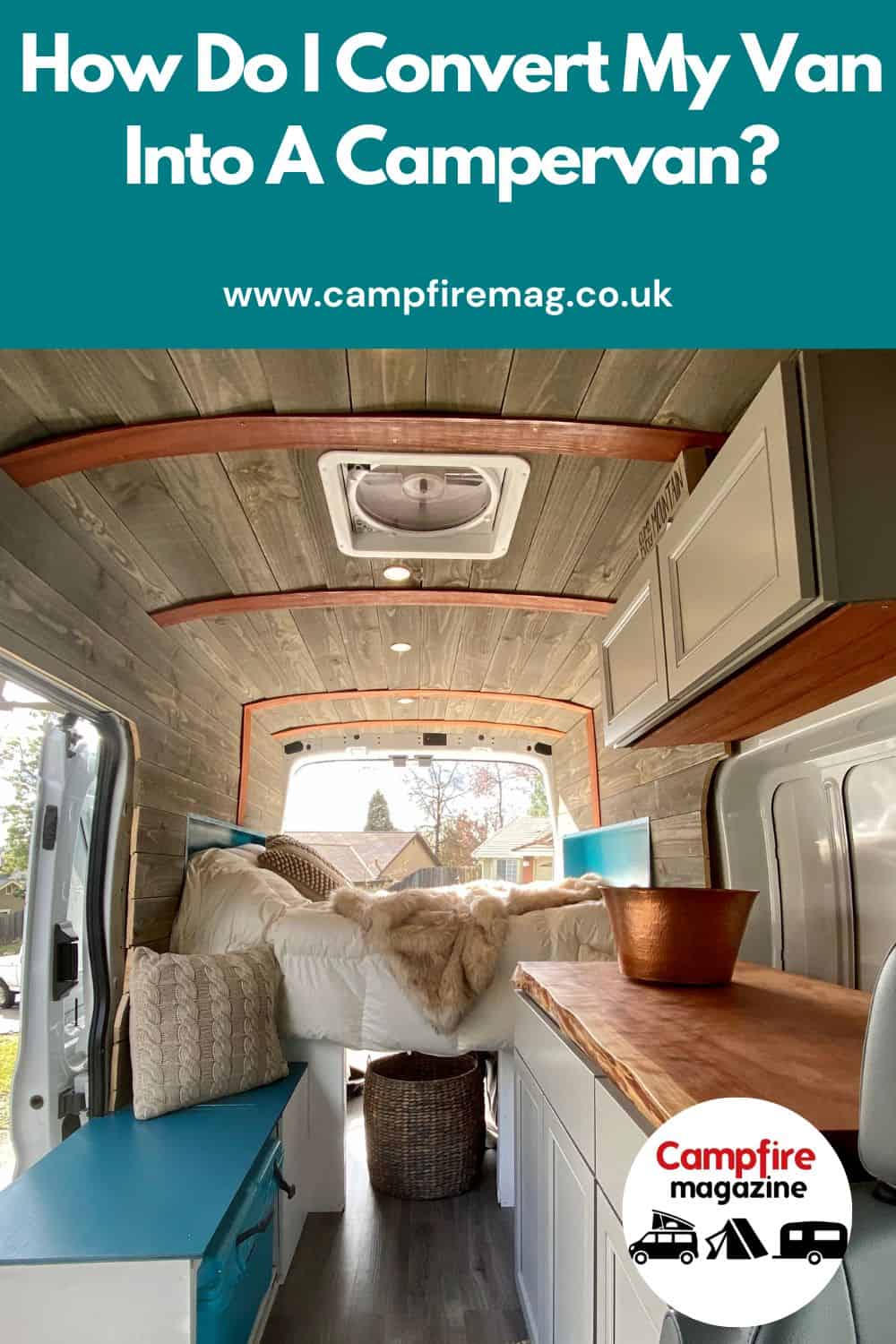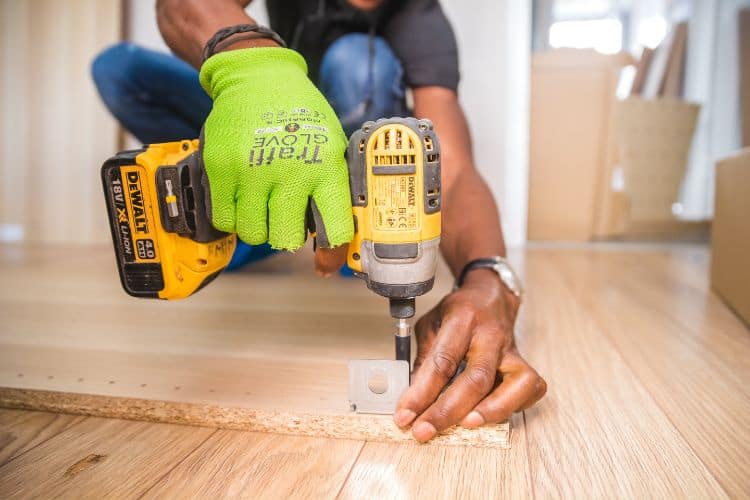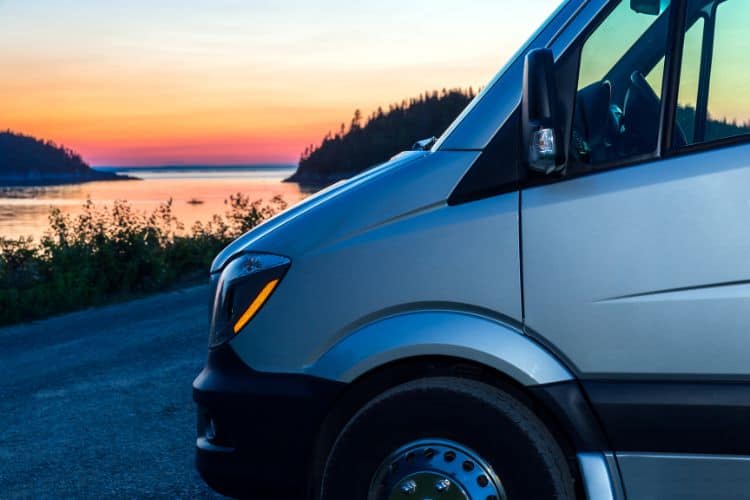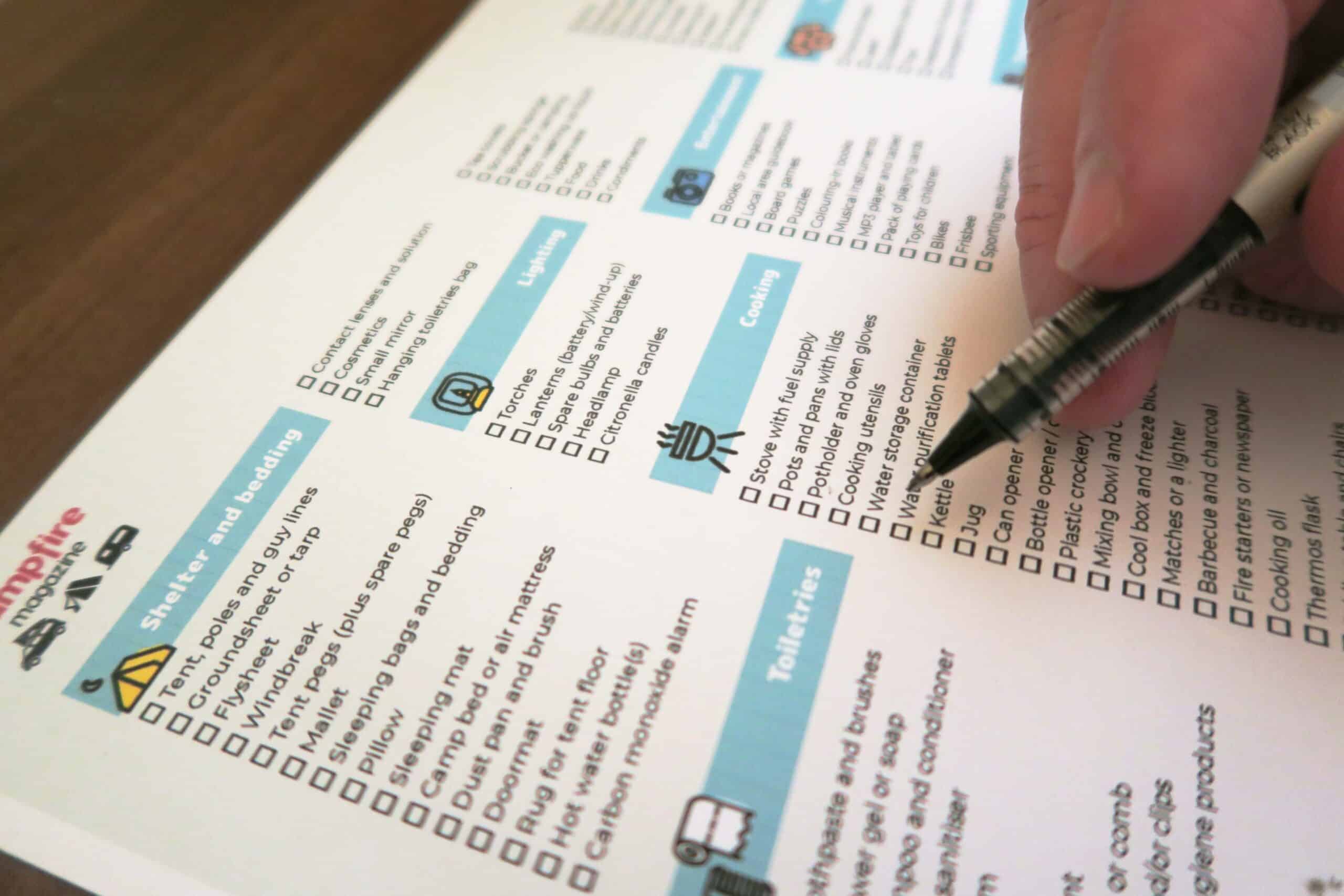If you want the opportunity to explore the country uninhibited then a campervan is a must. While you can buy these, there’s very little point when you already have a van just sitting there. You see, it’s entirely possible to convert your regular van into a camper provided you have the right materials and take a few other things into consideration.

What’s more, by doing a conversion you get to make the van unique to you and fill it with your personality. Not to mention the fact that having a project like this can kill time and be incredibly rewarding. It seems as though there’s no downsides, right?
Well, you’re going to need to invest a decent amount of money and make sure that you do everything within the confines of the law. But otherwise, you’re free to let your imagination run wild! In this guide, we’ll give you all the information you need to take your van from an empty shell to a comfortable mobile accommodation.
What Are The Best Types Of Van To Convert Into A Campervan?
Some of you reading this guide may already have a van sitting on the driveway ready for conversion. However, if you’re yet to purchase a van for your project then it’s worth considering that there are some vans more suited to this type of work than others. If you’re got the choice, we would highly recommend considering the following vehicles.
Fiat Ducato
The Fiat Ducato is actually one of the most popular choices when it comes to van conversion in Europe. It’s got a nice spacious interior and decent head height so that most average height adults won’t end up bumping their head every time they stand up inside the van. One of the best things about the Ducato is there are plenty of options if you buy brand new. For example, Fiat offers additional room for a water tank, a base specifically designed for motorhomes and a lower chassis.
Mercedes Sprinter
The Sprinter is an incredibly versatile vehicle and comes in a range of designs so there will likely be something that will meet your needs. Things that differ between models including wheelbase variations, the height of the roof and many others. What’s really great about this Mercedes van is that it comes with passenger car range controls and a whole host of top of the range safety gear. If you’re looking for a family friendly, super safe van, this should be at the top of your list.
Volkswagen T5 or T6
When you think of a campervan, your mind immediately drifts to the classic VW model invented way back in 1950. It’s like the Hoover of campervans, you might say. So it would be criminal not to mention other Volkswagen models that are perfect for conversion and that includes the panel or kombi vans T5 and T6. These are spacious vans with a modern nod towards the classic style and what’s more, there’s even an upgraded version; the Trendline that has a load of interesting features. These include things such as cruise control, Bluetooth and parking sensors. Yes, you’re going to pay more for these things but if you’re serious about getting on the road then they’ll certainly come in handy.
What Can I Expect To Spend When Converting My Van To A Campervan?
One of the first worries that people have when considering whether to convert their van into a campervan is that they’re going to end up spending their savings on the project. We won’t beat about the bush here, converting your van is going to require a serious investment. However, you have to consider the fact that, in the long run, you’re going to save money on accommodation and transport. Plus, it will work out cheaper than buying a brand new ready made campervan so you have to weigh this up.
It can help to set a budget for your conversion. But in order to do this, you’re going to need to plan out the costs. For those who are totally new to the idea, this can feel intimidating because there may be hidden or unexpected costs down the line. But shortly, we will go over the most common costs so you know what to expect.
But it isn’t only the cost of the conversion itself that you’ll need to budget for. There are other things like campervan insurance that you’ll need to factor in. When choosing a vehicle to convert, it goes without saying that the insurance base cost for that vehicle is going to vary between brands and models so it’s worth getting a few quotes before even buying a van.
You’ll also need to think about how often you plan on using the campervan. If you’re looking to spend a decent amount of time on the road then it’s probably worth investing a little more so that you can have all of your creature comforts. On the other hand, if you’re only going to use it for a couple of weekends a year, there’s not much point in doing anything other than a basic conversion.

Professional Van Conversion
Some people don’t like the idea of doing a DIY conversion and we’d absolutely back this notion if you don’t think you have the necessary skills or knowledge to do it. The last thing you want is a bodged attempt at a conversion that results in you having to fork out even more to fix any problems.
Realistically speaking, you need to expect to spend at least £3500 when using a conversion company and that’s if you’re looking for a basic job. This will include all the necessary living spaces and sleeping quarters.
However, you will also need to think about the cost of materials; the company isn’t going to give you these for free! The size of the campervan will determine how many materials are needed so this will increase or decrease the cost accordingly. There are also choices in the finish of the van with higher end materials coming in with a much higher price tag. If you’re looking to get the best finish on a larger vehicle, you could expect to pay up to £15,000.
Doing A DIY Conversion
With the cost of living crisis in full swing, we all understand the importance of not blowing our budgets. If you’re looking to do your conversion for as little cash as possible then doing a DIY project is going to save you money; provided that you’re savvy about it.
On the lower end of the scale, people have converted their vans for as little as a grand; although this is extreme and is based on the most basic conversions. If you want a more realistic figure, then you’d expect the job to total up to £3000. Again, this will depend on the size of the van, the type of materials you use and if you have to rope in the help of a professional for certain specialised jobs. This includes things like electrics which can be dangerous if approached without the relevant knowledge and training.
The one thing that a lot of people don’t realise when it comes to converting a campervan as a DIY project is how much skill is required. You’re going to want to make sure that all of the pieces fit together perfectly so having experience in a field like carpentry can be massively useful.
One of the best ways to save money on a DIY campervan conversion is to avoid buying brand new materials. There may be times that this is unavoidable but as they say, one man’s trash is another man’s treasure and you can often find unwanted, but perfectly decent materials on things like Facebook Marketplace and eBay. Spend some time shopping around and see what you can find, we’re sure you’ll be pleasantly surprised.

Are There Any Legalities I Need To Consider?
There’s always going to be some sort of red tape involved in anything like this so before you start your conversion, it’s worth thinking about the legal side of things. If you’ve wondering is it legal to convert a van into a campervan then you’ll be pleased to know that the answer is yes.
However, there are a few things that you’ll need to adhere to if you want your new campervan to stick on the right side of the law. When you do this type of conversion, you’ll be changing your vehicle’s class to a ‘motor caravan.’ We will go into more details on how to do this later on but for now, just know that this covers vehicles such as campervans, caravans and motorhomes.
There are some criteria that your vehicle must meet in order to qualify to be in this class and that sets it apart from any ordinary van. These are as follows:
The van must have an accessible door leading to the living area.
There must be a bed included that has a minimum length of six feet. This bed can be a permanent fixture or one that converts from other furniture items such as tables and seats.
There must be a water tank somewhere on or inside of the van.
There must be some sort of permanent storage such as a cupboard, locker or wardrobe.
There must be a permanent dining area that includes a table and seats. You cannot have a loose table.
The van must have permanent cooking facilities. These can be fueled by either electricity or gas.
The van must have at least one window at the side.
How To Reclassify A Van
Once you have completed your van conversion, it’s time to contact the DVLA to reclassify the van. On the V5C logbook, it will now need to be classed as a motor caravan. You start the process by filling in a motor caravan conversion checklist as well as a V5C with one of the selected van body types.
With your application, it is also necessary to submit photographs of the campervan which clearly show both the internal and external features so that the DVLA can be satisfied that it meets the requirements for this class. On the rear of the photos, you will need to provide a description of the picture as well as the registration number of the van and the date the photo was taken. Don’t forget to include a photo of the VIN or the chassis number which you can find stamped onto the plate on the vehicle body shell.
A Note On Your Driving Licence
Now that your campervan is legal, we realise how excited you are to get on the road but there is another legality you will need to think about before you set off; your driving licence. For cars, you will have a category B licence. However, when it comes to driving a campervan, you may need to upgrade your licence.
There are two categories that you may need to apply for. Which you need will depend on the weight of your campervan. For those between 3.5 and 7.5 tonnes, you will need a C1 licence. If your vehicle is more than 7.5 tonnes, you will need a category C licence. For both of these licences, an additional test is required so it’s worth taking this well in advance of the completion of your campervan so you can get going without delay.
And What About Insurance?
If you thought you’d gotten through all the red tape, there’s one final thing to consider and that’s insuring your campervan. As with any other vehicle on the road in the UK, it is a legal requirement to have insurance. But you won’t take out the same type of insurance as you would for your car as campervan insurance is designed especially to protect the van against damage, theft and accidents. But much like your car, there are three levels of insurance and you’ll probably be familiar with them.
The minimum level of cover you can take out for a campervan in the UK is third party. This covers any costs involved with damage to the vehicle or for personal injury claims to another party in the event of an accident that you caused. However, your campervan will not be covered for replacement or repairs.
The middle level of campervan insurance you can take out is third party, fire and theft. This provides you with an extra layer of cover so that you are protected should your campervan suffer fire damage or is stolen.
Finally, there is comprehensive campervan insurance which gives you the highest amount of protection. You are covered for all of the previously discussed things as well as accident protection.
We would always recommend taking out the highest level of cover but there are some things that your insurance won’t protect you from so this is always worth keeping in the back of your mind. That said, every insurance company is different and may come with various perks or add ons so you should read through the policy to be clear on what claims you can and can’t make. Generally speaking, you won’t be covered for the following:
General wear and tear
Damage caused by vermin or insect infestation
Puncture and cuts to the tyres as a result of general use
Theft of the vehicle where proper security measures weren’t in place. For example, if the doors were not locked or windows were left open.
How much you’ll pay for campervan insurance will vary massively between companies and because of factors to do with your individual vehicle. It’s well worth comparing quotes before making a final decision but you can expect that things like the age, model and value of the van will have an effect on the final cost. Things like where the campervan is stored and how often you use it will also play a part. The more no claims bonuses you have, the better your price will be.
But nobody wants to pay over the odds for their campervan insurance and while some of the above factors can’t be helped, there are a few things you can do to try to reduce the cost of your quote. These include:
Adding additional security features. This might include things like trackers and cameras which can act as a deterrent and reduce the risk of theft.
Make sure to store your campervan in as secure a location as possible. If you store it in a locked garage, for example, this will reduce your quote compared to storing the campervan on a busy roadside.
The less miles you do, the less change there is of having an accident and insurance companies take this into account. They will ask you to provide details of your annual mileage and it pays to record this as accurately as possible.
Things To Think About Before Converting Your Van Into A Campervan
When it comes to converting a campervan we have covered some of the most important things. But there are just a few more practicalities you’ll need to consider. Planning the conversion down to the letter is of the utmost importance because this isn’t a job that you should undertake lightly.
We would strongly advise spending some time working out all of the intricacies and figuring out precisely what it is you want to achieve. Here come some tips on the things you’ll want to think about and what options are out there.
Campervan Materials
Whether you decide to go for a DIY project or a professional fit out, you’ll still need to think carefully about the materials you’d like and the type and quality of finish you’re happy with. You’ll want to think about your personal taste. For example, are you a fan of a minila decor style or do you prefer something more rustic?
Pretty much any type of interior you could think of will be available for your conversion. While it is important to stick within your budget, this is also a chance to let your creative juices flow and show off your personality through your van. What’s more, by doing a conversion, you have the opportunity to create something totally unique.

Comfort
When you’re spending time in your campervan, you’re going to want to feel as though you’re in a home away from home. This means having some, if not all, of your creature comforts from home. These might seem like small things but they need to be factored in when planning your campervan conversion.
For example, you’re going to want to think about the things you’ll have in your campervan kitchen. For some people, a kettle is all they’ll need whereas others want to be able to whip up a storm on the go. In this case, you’re going to need more advanced cooking facilities, not to mention all the accessories to go with this like pots and pans.
When you’re cosying down for the night in your campervan then you’ll want to feel as comfortable as possible. Just because you’re on the road, it doesn’t mean that you cannot have your favourite memory foam pillows or down duvet. Also think about window dressings and soft furnishing to add those finishing touches.
One of the things that is required to class a vehicle as a campervan is that it needs to have some sort of permanent storage. But what will suit you will depend on what you want to store and how often you’ll use the van. Fixed storage needs to be sturdy and as spacious as possible without compromising on your living space. However, it’s also worth adding some temporary storage like containers and boxes.
When you’re on the road, there may be times when you need to act fast. Perhaps you’ve punctured a tyre or need to repair something in the living space. Having an on board tool kit could be a lifesaver when you’re on the go. Additionally, we would suggest ensuring that you have a well-stocked First Aid kit in your van in the event of an accident.
Added Extras
We’ve talked about the importance of being as comfortable as possible when using your campervan and there’s no shame in adding a few extras to really boost your comfort. We would recommend leaving these things until last so that you can be sure you have enough budget left over to cover them. After all, it’s much better to pay for that electrician than it is to worry about decorative items.
Some people like to install solar panels on their campervan which is ideal if you aren’t staying at a site with an electric hook up. While they aren’t the most affordable add on, they’re definitely worth the investment if you’re going to get the use out of them.
While you will have a fixed dining set in your campervan, you might not want to sit here to eat when the weather is nice. This means thinking about having somewhere to store a portable dining set that you can put up outside the van.
Finally, if you want to further put your stamp on the van then choosing decorative items is a must. Things like wall art, candles, ornaments and trinkets and anything else that takes your fancy can really turn the space into a home from home. There’s no need to go over the top, as you will be limited on space but putting a few finishing touches can really make the difference.
Conclusion
A campervan is a wonderful type of vehicle that gives you the freedom to explore the country with hardly any restrictions. You won’t have issues accessing remote places like you might in a large RV and you’ve got everything in one handy vehicle.
While buying a campervan that’s ready to go is an option, there’s nothing quite like the satisfaction of converting an existing van into something that you can really call your own. It is entirely possible but there are quite a few things that you’ll need to think about and you’ll have to set a budget.

